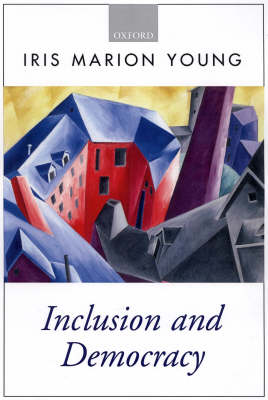Oxford Political Theory
1 total work
Democratic equality entails a principle that everyone whose basic interests are affected by policies should be included in the process of making them. Yet individuals and groups often claim that decision-making processes are dominated by only some of the interests and perspectives in the society. What are the ideals of inclusion through which such criticisms should be made and which might guide more inclusive political practice? This book considers that question from the point of view of norms of democratic communication, processes of representation and association, and how wide the scope of political jurisdictions should be. Democratic theorists have not sufficiently attended to the ways processes of debate and decision making often marginalize individuals and groups because the norms of political discussion are biased against some forms of expression. "Inclusion and Democracy" aims to broaden understanding of democratic communication by reflecting on the positive political functions of narrative, rhetorically situated appeals and public protest.
